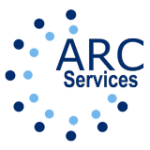How Can You Help Someone?
Too often, we receive calls from relatives stating they just found out about their child’s substance use problem. We also discovered that in most cases, the parents have no clue what actions to take, never having dealt with this before. There is a sense of fear, worry, concern, and sometimes, a feeling of failure as a parent.
But there are so many different reasons a person will suffer from substance use disorder. Parents have very little to do with it unless genetic predisposition is present. Whatever the reason, any negative emotions are far from constructive in this matter.
Here are some of the DOs and DON’Ts in helping someone.
A Few Tips to Keep in Mind
Here are a few tips on what to do or not do.
1st. Do not enable them; it only fuels their abuse. For example, if they ask for money to help pay for different things, tell them to bring the bill and pay it yourself. Recognize this as an indicator, especially if the person has a good job. Do not give money freely.
2nd. Always face the problem head-on without challenging the person. If you suspect or know addiction exists, question it. If the person denies it, don’t challenge them. Ask again (invite a response) until you get the truth.
If they deny it and turn the table on you, “how you mistrust them,” you know they are hiding something. Be patient.

Enabler Defined
First Step in
Helping Someone

Intervention for Difficult Circumstances
Of course, if the person is a danger to themselves or others, you should consider calling a professional interventionist. Many private treatment centres have their intervention teams. So, calling for help should be strongly considered in this case.
An intervention requires some coordination between the family and the interventionist.
The First Step
In our years of working in this field, we can say with certainty that the first step after discovery is gaining some understanding. If you have no idea what Crystal meth is, find out. If your daughter is addicted to cocaine, well, learn about cocaine.
We have on our site some pages on different substances. Also, one of the best platforms on mind-altering substances is drugfreeworld.org. You will find answers there, learn what you are dealing with, and know the subject. This action gives you an advantage in knowing what to talk about with the person.
Second Step Inviting a Response
Inviting a response is a specific action with a particular dialogue that can become taxing. You must remember never to tell the person your opinions, know-best, or authoritarian dictates. Keeping a friendly attitude toward the person is crucially important.
What is needed is question and answer, question and answer only. You ask, and the person answers. (Of course, if they ask questions, you must answer.) But do not comment on, attack, judge, evaluate, or minimize what they say. Simply understand what is said and acknowledge it whether you agree with it or not.
You want to create a safe atmosphere which permits the person to talk to you. Doing this will ease the person and make them willing to talk to you. Once you have an open conversation and know more about what is happening, you can offer help.

Backing Off
From Help
Intervention
Process

Factors in Dealing with Substance Use Disorder
Nobody wants to be addicted. But a person can get caught in the quick fix that mind-altering substances provide to an uncomfortable feeling or an unsolvable problem.
Strong obstacles are preventing them from stopping. Here are some:
- the discomfort of withdrawal symptoms,
- not knowing what to expect in treatment, and
- fear of the outcome of rehab. (the fear of “failing.”)
More on Obstacles
The withdrawal process, or detox, can be physically and emotionally challenging. They might have encountered these symptoms between hits and wish to prevent experiencing them again. Other people may fear the discomfort it can bring from hearsay.
Going to rehab often entails significant lifestyle changes. Some individuals may fear the unknown or the prospect of a life without their substance of choice. They might lack a clear understanding of what to anticipate from a rehabilitation center or what the facility requires of them.
Perhaps stigma associated with this subject can deter some from seeking help due to fear of judgment. Also, the idea of surrendering control and decision-making to a treatment program for some can be intimidating. Lastly, fear of failing can be a strong deterrent.
Substance Use Disorder, Physical and Emotional State
Physical Condition
Some families may face the addiction of a loved one because of earlier physical or emotional conditions. For example, pain from an accident or operation is usually prescribed medication for a period to relieve discomfort. The pain can linger longer than the specified time of the medicine.
Sometimes, with highly addictive drugs, the person may feel withdrawal symptoms but misinterpret it as pain from the accident or operation. Some people have a low tolerance for opiate-type pain medications and rapidly become addicted.
Emotional Condition
Another example is someone facing a difficult life situation or an unwanted condition. It can be as simple as boredom or the inability to feel comfortable in social situations. There are as many circumstances as there are people substance misuse. The person lacking the proper life skills to deal with this state of affairs will be in this ever-present condition.
As we all want to be happy, a person will seek relief. Alcohol and drugs do this. Being numbing agents, they numb out the source of the discomfort. Once it dissipates, the person needs more and higher dosages to get the same relief. Thus, we have the start of addiction.

Five Steps
Through Denial
Drowning in
Someone's
Addiction

Major “Don’ts” in Getting a Person to Receive Help
Getting a person to recognize and accept that they need help will require patience, care, and compassion. It will also require letting the person be who they are and having good communication skills. There are a few things you should never do. You should not
- keep asking why the individual keeps getting drunk or high.
- pointing out how destructive it is to their health and those around them. And
- call them out when they are high or drunk.
All this does is make the person feel worse. It is an additional unwanted feeling and only amplifies the need for more drugs and alcohol.
The Must “Dos”
Helping a person with substance use disorder can be done only with a gradual approach. The idea here is to keep the conversation going. It can be over several distinct periods. The result is their recognition that you care and want to help them.
When they are sober, ask them questions, and you must listen to what they say.
- Ask them how the drug or alcohol is helping them.
- What benefit do they get from it? And similar questions.
The answers may surprise you. If the person tells you of the benefits, you should also
- ask about the disadvantages of drugs or alcohol in their life.
It gets the person to look at both sides of the issue. In other words, you are asking them to evaluate their current lifestyle choices. There are many ways of doing this; you must remember that you are simply getting them to LOOK at their life. And the goal is to have them realize that they should do something.
In the end, the simple and proven method to help someone is to encourage and coax them without judgment.
Substance Use Disorder Help, Conclusion
The whole point is that help is possible and many families can do the first steps. It begins with
- Knowing the subject,
- getting the other to talk to you,
- listening without judgment, and
- helping them open the door to solutions.
If you need assistance, we can help.
You can find the coordinates for public-access treatment here
Listing for Alberta, British Columbia, and Ontario.

Intervention
Series
Find out more about us.

Marc J. Bernard
Author,
Substance Use Disorder & Recovery Professional,
Referral & Consultation Counsellor






